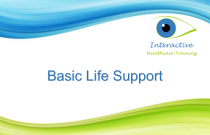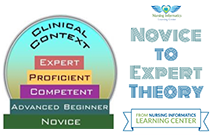HH100: Diabetes Type 2
Leanne Anthon, RN, BSN, MSN
The home health aide will enhance her understanding of type 2 diabetes and the care of the client with the disease.
NUR147: Infection Control.
Mary McGeough, R.N., B.S.N.
Health care professionals will review and gain knowledge of current and emerging infection control procedures, common health care related infections, and infectious disease outbreaks.
NUR109: Coronary Heart Disease
Linda Fisk, BS, RN
The healthcare practitioner will enhance her knowledge of coronary heart disease and its impact on the individual.
Implanted Ports: Infection Risks and Treatment
Michael Saubolle PhD, DABMM, FIDSA, FAAM
1.00 Hours
First used in the 1980s, implanted vascular access ports were developed as a means of decreasing bloodstream infections among oncology patients. Their use has expanded among patients with other diagnoses that require long-term, reliable central vascular access. This session will identify the epidemiology associated with infectio....
Lung Volume
Medical Education Systems, Inc.
20.00 Hours
This course will offer an in-depth analysis of lung volume, why it is important, and how it is measured. The meaning and importance of Inspiratory Capacity (IC) and Expiratory Reserve Volume (ERV) will also be discussed.
Mastering Effective Communication
Danny Silk, MSW
1.00 Hours
The need to communicate with our fellow human beings is necessary, unless of course, you’re a hermit. But good communication can be tricky. Communicating well involves understanding the fundamental skills of effective communication and some practice. Research evidence indicates strong correlation between a healthcare provider’s....
G-Tube Care & Maintenance
Medline University
1.00 Hours
The goal of this program is to discuss enteral tubes and inform healthcare professionals regarding the procedure for administering feedings and medications, and for performing maintenance of the enteral tube. The course provides the healthcare professional with the tools necessary to recognize various feeding methods, list metho....
Lower Extremity Wounds: Focus on Peripheral Arterial Disease (PAD) Awareness
Medline University
1.00 Hours
As nurses, we are often consulted to see patients with lower extremity wounds in a variety of care settings to include acute care, home care, long term care, as well as outpatient wound centers. This presentation is designed to increase your knowledge regarding lower extremity wounds and PAD awareness, and to review current best....
Management of gastroenteritis in children under five years
Adam Davies
1.00 Hours
This learning module explores the causes and management of gastroenteritis in children under five years. It considers in particular national guidance from the National Institute for Health and Care Excellence. The importance of identifying and assessing dehydration is discussed, as well as its systematic management, carer educat....
Loss and grief in the childbearing period
Denise Côté-Arsenault, PhD, RNC, IBCLC, FNAP
4.50 Hours
Provides a solid foundation of historical, theoretical and clinical knowledge to facilitate effective nursing care of families faced with pregnancy or newborn loss. Addresses potential effects that caring for bereaved families can have on nurses. Includes case studies and resources for professionals and families.
Basic Life Support
Industry Specialists
2.00 Hours
Basic Life Support is a specialist course covering terminology, legal requirements and basic life support techniques in case of an emergency. The course aims in particular to teach its readers how to assess an incident and manage a casualty who is choking, vomiting, unconscious or not breathing. The course uses audio-visual el....
Lessons from the Ebola Crisis: Global Health on your Doorstep
Edward Zuroweste, MD
1.00 Hours
We all live in an increasingly globalized world which is beset with economic and political crises as well as profound disparities in opportunity and access to scarce resources. Within this context, migration is a constant. Mobility within nations as well as internationally is an ever growing reality for many people throughout th....
Inhaler technique — the why and the how
Ruth Morrow
Inhaler technique is an essential skill for patients and nurses to ensure optimum and accurate delivery of medication to the lungs. This module aims to provide nurses with information on the rationale for optimum inhaler technique, the consequences of poor inhaler technique, errors with inhaler technique and the different techni....
How Scan4Safety helps to support patient safety
Rob Drag & Lorna Wilkinson
Rob Drag, Scan4Safety Programme Manager and Lorna Wilkinson, Director of Nursing will share the Salisbury Hospital's journey (UK) with GS1 standards.
Novice to Expert Theory
June Kaminski, RN MSN PhD(c)
3.00 Hours
This 1 module (3 CE credit) course introduces nurses to the Novice to Expert Theory, (a construct theory first proposed by sibling researchers, Hubert and Stuart Dreyfus (1980) as the Dreyfus Model of Skill Acquisition, and later applied and modified to nursing by Patricia Benner in 1984) provides a very useful and important the....
Human Factors in Nursing Informatics
June Kaminski, RN MSN PhD(c)
5.00 Hours
This 2 module (5 CE credit) course introduces nurses to human factors essential to effective application of nursing informatics in practice. Topics focus on the human factors of ergonomics, human-computer interaction, usability, learnability, memorability, likeability, readability, asepsis, and aesthetics.
Human Trafficking Victims
The Department of Justice, the Department of Health and Human Services
3.00 Hours
Human trafficking, also known as modern day slavery, is a crime that involves the exploitation of a person for the purpose of compelled labor or a commercial sex act. This CEU course details a series of coordinated actions to strengthen the reach and effectiveness of services provided to all victims of human trafficking. Inclu....
Focus On Prevention
David Lamont Wilson
3.00 Hours
Misuse of alcohol, tobacco, and other drugs is a problem throughout the United States. This CEU course provides information about discrete steps to help with conceptualizing and planning a prevention event by defining the essential traits of high-quality prevention strategies, laying out guiding principles and action steps, and....
Neurobiology of Childhood Maltreatment
Eamon McCrory, Ph.D., et al.
2.00 Hours
Childhood maltreatment represents a significant risk factor for psychopathology. This advanced CE course provides the neuroendocrine findings for the association between maltreatment and atypical development of the hypothalamic-pituitary-adrenal axis stress response.
Management of Tuberculosis in Prison Populations
Federal Bureau of Prisons
4.00 Hours
Tuberculosis (TB) prevention and control is a high public priority for correctional systems, since TB outbreaks continue to occur in U.S. jails and prisons. This CEU course provides the Federal Bureau of Prisons clinical practice guidelines for the treatment of federal inmates with tuberculosis infection and disease and for the....
Domestic Violence Offender Program Standards
Karen Jarmoc, M.A., et al.
2.00 Hours
Domestic violence, as a learned behavior, is supported by a system of beliefs and attitudes and requires a variety of approaches to prevent, reduce, and eliminate it. This CEU course provides standards that are designed to address the patterns and dynamics of male to female violence, control, and abuse. These standards are int....
Management of Bipolar Disorders in Prison Populations
The Federal Bureau of Prisons
3.00 Hours
This CEU course provides the most current Federal Bureau of Prisons recommendations for the management of bipolar disorders in the federal inmate population.
Florida Laws and Rules for Mental Health and Social Worker Professionals
Quantum Units Education; Florida Board of Clinical Social Work, Marriage & Family Therapy and Mental
3.00 Hours
This CEU course provides the laws and rules for clinical social workers, marriage and family therapist, and mental health counselor professionals practicing in Florida.
Mental Health Needs of Youth Processed in Juvenile vs. Adult Court
Jason Washburn, Ph.D., ABPP, et al.
1.00 Hours
This brief CEU course provides the results of a study of the prevalence of psychiatric disorders among youth transferred to adult criminal court compared with those processed in juvenile court.
Mental Health Awareness
Nicole Eady
This introductory session aims to raise awareness of mental health issues with healthcare staff. It is designed to give a broad overview of what encompasses mental illness whilst highlighting the link between mental and physical health diagnoses. It also provides some simple guidance on how best to care for someone with mental h....
















